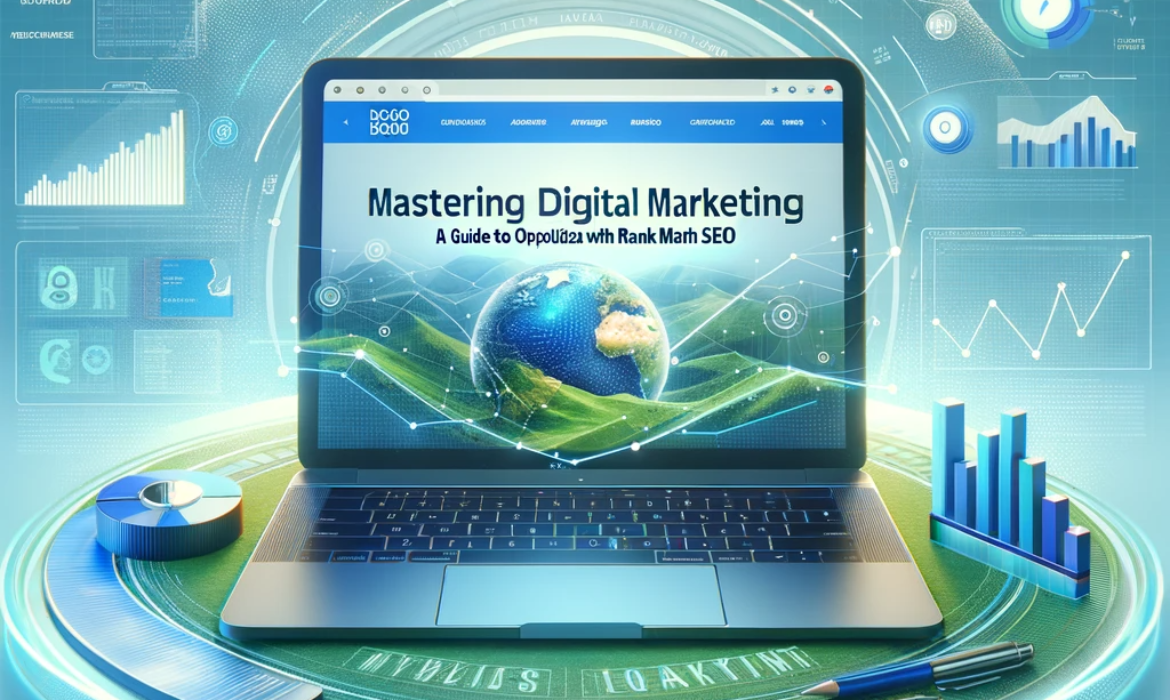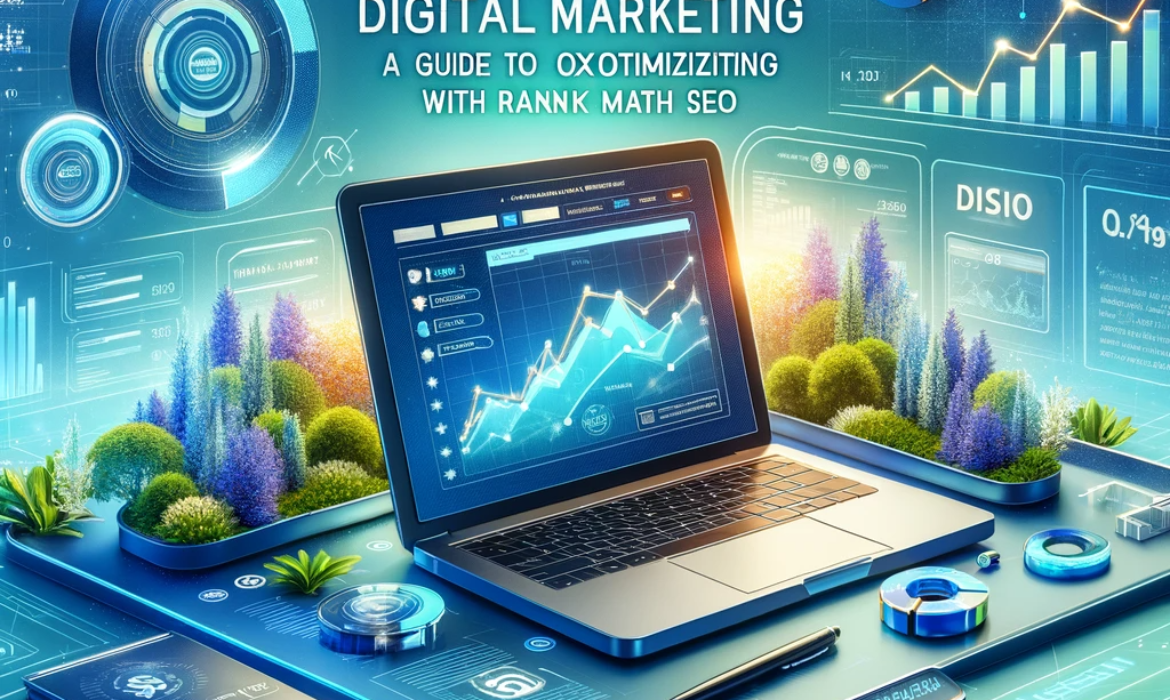Elevating Your Business with Digital Marketing Services
Introduction
In today’s digital era, the importance of online presence for businesses cannot be overstated. Traditional marketing strategies have evolved to embrace the digital world, making digital marketing services an indispensable tool for any business aiming to thrive in the competitive online marketplace. This blog delves into the multifaceted world of digital marketing, outlining its various services and the profound impact they can have on your business.
The Essence of Digital Marketing
Digital marketing is a broad term that encompasses all marketing efforts that use an electronic device or the internet. Businesses leverage digital channels such as search engines, social media, email, and websites to connect with current and prospective customers. Unlike traditional marketing, digital marketing offers a unique opportunity for businesses to engage in direct and two-way communication with their audience.
Core Digital Marketing Services
SEO (Search Engine Optimization):
This is the art of enhancing your website’s visibility in search engine results pages. By optimizing your site for relevant keywords, you increase the likelihood of attracting targeted traffic.
PPC (Pay-Per-Click) Advertising:
PPC is a model of internet marketing where advertisers pay a fee each time one of their ads is clicked. It’s essentially buying visits to your site, rather than attempting to “earn” those visits organically.
Content Marketing:
This strategic marketing approach focuses on creating and distributing valuable, relevant, and consistent content to attract and retain a clearly-defined audience.
Social Media Marketing:
It involves creating and sharing content on social media networks in order to achieve your marketing and branding goals.
Email Marketing:
Businesses use email marketing to communicate with their audiences. Email is often used to promote content, discounts, and events, as well as to direct people toward the business’s website.
Advantages of Digital Marketing Services
Digital marketing services offer unparalleled advantages over traditional marketing methods. The cost-effectiveness of digital campaigns makes them accessible to businesses of all sizes. Additionally, digital marketing services provide measurable results, allowing businesses to track and analyze the performance of their campaigns in real-time. This data-driven approach ensures that strategies can be adjusted for maximum effectiveness.
Integrating Digital Marketing Services in Your Business
Implementing digital marketing services requires a strategic approach. It starts with understanding your business needs and aligning them with the right digital marketing strategies. The selection of services should be based on your target audience, business objectives, and budget. Crafting a comprehensive digital marketing strategy involves combining various services to create a cohesive and effective online presence.
Trends and Future of Digital Marketing
The digital marketing landscape is continually evolving, with new technologies like AI and VR reshaping the way businesses interact with customers. Consumer behaviors are also changing, necessitating a more personalized and engaging approach to marketing. Keeping abreast of these changes and adapting your digital marketing strategies accordingly will be crucial for future success.
Conclusion
The realm of digital marketing services is dynamic and ever-expanding, offering businesses unprecedented opportunities to grow and succeed in the digital age. By embracing these services, companies can reach wider audiences more effectively and efficiently than ever before. Whether it’s through SEO, content marketing, or social media strategies, the potential of digital marketing services in dubai to transform a business is limitless.
Navigating the Digital Marketing Landscape: Your Essential Guide to Digital Marketing Services
Introduction:
- Start with an engaging statistic or fact about the impact of digital marketing services on business growth.
- Define “digital marketing services” as the modern-day cornerstone for businesses aiming to reach a wider audience through online platforms.
- Trace the evolution from traditional advertising methods to the dynamic world of digital marketing services.
Section 1: Understanding the Core of Digital Marketing Services
- Clarify that “digital marketing services” encompass a variety of online tactics and strategies aimed at enhancing a brand’s presence on the internet.
- Emphasize the critical role of digital marketing services in connecting with tech-savvy consumers and keeping pace with digital consumption trends.
Section 2: Exploring the Spectrum of Digital Marketing Services
Search Engine Optimization (SEO):
- Share a case study illustrating the impact of SEO as a part of digital marketing services on a small business’s online presence.
- Discuss advanced SEO techniques, including mobile and voice search optimization, under the umbrella of digital marketing services.
Social Media Marketing:
- Present success stories of social media campaigns as a testament to the effectiveness of digital marketing services.
- Talk about the integration of influencer marketing within the broader scope of digital marketing services.
Content Marketing:
- Provide examples of successful content strategies, showcasing the diversity and creativity in digital marketing services.
- Discuss the role of AI in content creation, a cutting-edge aspect of digital marketing services.
Email Marketing:
- Highlight statistics on the ROI of email marketing, an essential component of digital marketing services.
- Delve into segmentation and personalization, key strategies in the realm of digital marketing services.
Pay-Per-Click Advertising (PPC):
- Illustrate how PPC, a critical part of digital marketing services, benefits both small and large-scale businesses.
- Discuss emerging trends in PPC, like AI and machine learning, as evolving facets of digital marketing services.
Affiliate Marketing:
- Share success stories and ethical practices in affiliate marketing, an important branch of digital marketing services.
- Highlight the mutual benefits for affiliates and businesses within the digital marketing services framework.
Section 3: The Benefits of Embracing Digital Marketing Services
- Elaborate on the unmatched analytics and insights offered by digital marketing services.
- Discuss the environmental benefits of choosing digital marketing services over traditional marketing methods.
Section 4: Choosing the Right Digital Marketing Services for Your Business
- Provide a guide to help businesses assess and integrate suitable digital marketing services into their strategies.
- Offer budgeting tips specific to digital marketing services.
- Stress the importance of keeping abreast with the latest trends in digital marketing services.
Conclusion:
- Recap the transformative impact of digital marketing services in today’s business environment.
- Encourage businesses to consider digital marketing services as an integral part of their growth strategy.
Call-to-Action:
- Offer a free consultation or invite readers to a webinar focused on maximizing the potential of digital marketing services.
- Encourage subscription to a newsletter for ongoing tips and insights into digital marketing services.
Leveraging Digital Marketing Services for Enhanced Online Visibility: An SEO-Centric Guide
Introduction
- Expand on the evolving digital landscape and its impact on businesses.
- Discuss the increasing importance of having a robust online presence.
- Elaborate on how digital marketing services, integrated with SEO, are key to achieving this presence.
- Clarify the goal of the blog: to offer a detailed guide on optimizing digital marketing strategies with a focus on SEO.
Understanding Digital Marketing Services
- Provide a more detailed definition of digital marketing services, encompassing newer trends like influencer marketing and video marketing.
- Discuss the role of these services in reaching diverse audiences and enhancing brand recognition.
- Integrate examples of successful digital marketing campaigns.
- Use the focus keyword naturally while discussing the evolution and scope of these services.
The Role of SEO in Digital Marketing
- Offer a deeper explanation of SEO, including its historical evolution.
- Discuss the importance of SEO in the era of mobile and voice search.
- Explain how SEO practices have changed over time and what modern SEO looks like.
- Illustrate how SEO strategies can complement and enhance various digital marketing tactics.
Key SEO Strategies for Digital Marketing
- Go into more detail about each SEO technique, perhaps adding recent trends like voice search optimization and AI-driven SEO.
- Discuss the integration of these strategies in different digital marketing channels, like how keyword research applies to content marketing and social media.
- Provide more practical tips and best practices for implementing these strategies effectively.
Measuring the Success of Your SEO-Enhanced Digital Marketing
- Add information about setting realistic goals and benchmarks in digital marketing services and SEO.
- Discuss the role of competitor analysis in measuring success.
- Explain how to use advanced features of analytics tools to gain deeper insights.
Case Studies: Successful Digital Marketing with an SEO Focus
- Include more detailed case studies or a broader range of examples.
- Discuss diverse industries to illustrate how these strategies can be adapted to different business models and markets.
Conclusion
- Provide a more comprehensive summary, reinforcing the importance of integrating SEO into digital marketing.
- Include a motivational call to action, encouraging readers to embrace these strategies for their business growth.
- Suggest further reading or resources for more in-depth understanding.
SEO Considerations:
- Emphasize the importance of keyword diversity and long-tail keywords in addition to the focus keyword.
- Discuss the role of user experience in SEO, including site speed and mobile-friendliness.
Final Tips:
- Recommend regular updates to digital marketing strategies based on SEO trends.
- Suggest engaging with a digital marketing community for shared learning and updates.
Digital Marketing: Revolutionizing Business in the Digital Age
Introduction: The Rising Significance of Digital Marketing in Modern Business
In an era dominated by technology and online interactions, digital marketing services has become pivotal in shaping business strategies. This form of marketing not only reaches a wider audience, but also allows for targeted advertising, real-time customer interactions, and instant feedback. It marks a significant shift from traditional marketing, where businesses were limited to one-way communication. In the digital realm, companies can engage with their audience, understand their needs, and tailor their offerings accordingly.
Understanding Digital Marketing: A Comprehensive Overview
Digital marketing services encompasses a variety of tactics and channels to connect with customers where they spend much of their time: online. It’s an all-encompassing term representing different online marketing functions. As the digital landscape continues to grow, the methods and strategies of digital marketing evolve. This dynamic field includes several key aspects:
- Affiliate Marketing: Collaborating with external websites or influencers to promote products or services.
- Influencer Marketing: Partnering with influential people in a specific industry to reach a larger audience.
- Mobile Marketing: Reaching customers through smartphones and mobile devices via SMS, MMS, and mobile apps.
- Video Marketing: Using video as a medium to promote or market your brand, product, or service.
Key Strategies in Digital Marketing: Building a Successful Online Presence
An effective digital marketing strategy requires a deep understanding of the digital landscape. It’s not just about being present on digital platforms, but using these platforms to effectively communicate and engage with the target audience. This strategy includes: platforms, but
- Brand Storytelling: Using a narrative to connect your brand to customers, with a focus on linking what you stand for to the values you share with your customers
- Personalization: Tailoring your marketing strategy to individual customers based on their preferences and behaviors
- Omnichannel Marketing: Providing a seamless customer experience across all channels, whether the client is shopping online from a mobile device, a laptop, or in a brick-and-mortar store.
The Role of SEO in Digital Marketing: Driving Organic Growth
Search Engine Optimization (SEO) is an essential part of any digital marketing strategy. It’s about understanding what people are searching for online, the answers they are seeking, the words they’re using, and the type of content they wish to consume. Knowing the answers to these questions allows you to connect to the people who are searching online for the solutions you offer. Advanced SEO techniques include:
- Local SEO: Optimizing for local search results, is particularly important for businesses that have physical locations.
- Voice SEO: optimizing for voice search and recognizing the increasing use of voice assistants
- Mobile SEO: ensuring your site is mobile-friendly, as more users access the internet via mobile devices.
Measuring the Success of Digital Marketing Campaigns: Tools and Metrics
In digital marketing, it’s crucial to measure the effectiveness of your strategies and campaigns. This involves tracking various metrics to understand performance and make data-driven decisions. Advanced tools provide insights beyond basic metrics.
- Heatmaps: Understanding how users interact with your website
- A/B Testing: Comparing two versions of a web page to see which performs better.
- Customer Segmentation: Analyzing different groups of your audience based on their characteristics and behaviors
Future Trends in Digital Marketing: Staying Ahead in a Digital World
The future of digital marketing services lies in understanding and leveraging the latest technological advancements. As the internet becomes more integrated into our daily lives, these trends are becoming increasingly important:
- Augmented Reality (AR) and Virtual Reality (VR): offering immersive customer experiences
- Blockchain Technology: Providing transparency in marketing campaigns and customer transactions
- Sustainable and Ethical Marketing: Recognizing the growing consumer interest in sustainability and ethical practices
Conclusion: Embracing Digital Marketing for Business Success
The digital marketing landscape is vast and complex, yet it offers unparalleled opportunities for businesses to grow and connect with their customers. By embracing the various aspects of digital marketing, companies can create a robust online presence, engage effectively with their audience, and drive business growth. As the digital world continues to evolve, staying agile and informed about the latest trends and technologies will be key to marketing success.
Mastering Digital Marketing: A Guide to Optimizing with Rank Math SEO
Introduction
Start by emphasizing the digital era’s impact on marketing. Explain how businesses are increasingly relying on digital channels to connect with their audience. Introduce the concept of digital marketing as an umbrella term that encompasses various strategies and tactics used online. Highlight the pivotal role of Search Engine Optimization (SEO) in making digital content more visible and accessible to target audiences. Introduce Rank Math as an innovative SEO tool that simplifies and amplifies the effectiveness of these efforts. End the introduction by stating the importance of keyword optimization, setting the stage for the detailed discussion to follow.
Section 1: Understanding Digital Marketing
- Defining Digital Marketing: Expound on digital marketing as the practice of promoting products or services through digital channels like search engines, websites, social media, email, and mobile apps.
- Components: Delve deeper into each component. For SEO, discuss the optimization of content to rank higher on search engine results pages. In content marketing, talk about creating and sharing valuable content to attract and retain a defined audience. For social media, highlight the use of platforms like Facebook, Instagram, and Twitter to engage with customers. Discuss email marketing as a direct way to reach customers through personalized messages. Lastly, touch on paid advertising like pay-per-click campaigns.
- Business Significance: Elaborate on how digital marketing helps businesses reach a broader audience more efficiently than traditional methods, allows for targeted campaigns, and provides measurable results.
Section 2: The Role of SEO in Digital Marketing
- Understanding SEO: Describe SEO as the process of optimizing a website to increase its visibility for relevant searches, thereby attracting more organic traffic.
- Evolution of SEO Practices: Talk about the transition from keyword stuffing and backlinking to more sophisticated practices that focus on user experience, mobile optimization, and quality content.
- Keeping Up with Trends: Emphasize the importance of adapting to the changing algorithms of search engines and staying informed about the latest SEO strategies.
Section 3: Introduction to Rank Math SEO
- Overview of Rank Math: Present Rank Math as a comprehensive SEO plugin for WordPress users. Mention its user-friendly setup wizard, Google Search Console integration, and ability to perform advanced SEO audits.
- Features and Benefits: Highlight specific features like keyword ranking tracking, on-page SEO analysis, and rich snippet support. Discuss how these features help users optimize their content easily and effectively.
- Comparison with Other Tools: Compare Rank Math with other popular SEO tools, noting its ease of use, automation features, and advanced options that may not be available in other tools.
Section 4: Keyword Optimization with Rank Math
- Importance of Keywords: Explain how the right keywords can drive the right traffic to a website and how they are crucial for SEO.
- Rank Math and Keywords: Describe how Rank Math helps in finding and integrating the most effective keywords in website content. Mention its features like keyword suggestions and SEO scoring.
- Tips for Keyword Selection: Offer advice on selecting keywords, such as focusing on long-tail keywords, understanding user intent, and using tools for keyword research.
Section 5: Implementing Rank Math SEO Strategies
- Setting Up Rank Math: Provide a step-by-step guide on installing and configuring Rank Math, including setting up SEO titles and meta descriptions.
- Using Rank Math for On-Page SEO: Detail how to use Rank Math’s analysis tool to optimize content, such as using the focus keyword effectively, improving readability, and optimizing images.
- Ongoing SEO Maintenance: Discuss the importance of regularly reviewing and updating SEO strategies, using Rank Math’s analytics to track performance, and adjusting strategies based on data insights.
Section 6: Measuring Success with Rank Math
- Rank Math Analytics: Explain how Rank Math’s analytics tools help measure the success of SEO efforts. Mention features like tracking keyword rankings and monitoring website traffic.
- Using Data for Improvement: Talk about how to use the data from Rank Math to refine SEO strategies, such as identifying underperforming content, understanding audience behavior, and making data-driven decisions.
Conclusion
Conclude by summarizing the key points made throughout the blog. Reinforce the importance of SEO in digital marketing and how tools like Rank Math can significantly aid in this endeavor. Encourage readers to adopt a proactive approach to SEO, stay updated with trends, and continuously optimize their digital content. End with a call to action, urging readers to start implementing these strategies in their digital marketing efforts.
Rank #1 on Google and maximize ROI with the best SEO Digital Marketing Company Dubai
Welcome to WordPress. This is your first post. Edit or delete it, then start writing!
Reshaped Leadership Team to Emerge Shop Buyout
Want to know the one thing that every successful digital marketer does first to ensure they get the biggest return on their marketing budget? It’s simple: goal-setting. This is an absolutely essential practice for any digital marketer who knows how to execute their campaigns in a productive, cost-effective way. With a few. With a few simple tips, you can be doing the same in no time! In this blog, we’ll walk you through the first steps every savvy digital marketer takes to ensure that they’re on target to hit all their marketing objectives. Get ready for revenue!
Remember: even if the channel you’re considering is all the rage right now, it might not fit your brand. Always make informed decisions that directly relate to your company. Otherwise, your message won’t be delivered to its intended audience and you’ll have wasted time, effort and money.
Know Your Digital Goals
The first step is clearly identifying which goals you want to achieve. Get specific. Do you want to increase brand awareness? Are you all about locking in leads? Do you want to establish a strong network of influencers that can help you be discovered? How about pushing engagement on social media?


Get Specific
A useful tool for narrowing down your goals to ensure they’re viable is the SMART mnemonic. It’s important to get specific to understand exactly what you’re working towards, and help you break down the process of hitting your targets. This is exactly what this mnemonic helps you to achieve.
- Does the channel reach my intended audience?
- Is the channel sustainable and affordable within my company’s marketing budget?
- Will I be able to measure the success of the channel?
- Does the channel allow me to express my brand’s intended message?
- Do the channels I’m considering work together to convey my message?

Always Remember Your Goals!
Establishing a solid vision for your business is the first step to planning your digital marketing budget. Always keep your final goals in sight when organising anything for your company. When deciding which steps to take next in your business, ask yourself how they will help you achieve the goals you outlined in Step #1. This will ensure that you stay on track and prevent you from spending your budget on anything that won’t help you achieve.
Cum et essent similique. Inani propriae menandri sed in. Pericula expetendis has no,
quo populo forensibus contentiones et, nibh error in per.Denis Robinson
As your budget progresses and evolves, continue referring to your SMART objectives. Stay focused and remember your goals – they will always inform what your next step will be!
Design-Nation Publishes ’20 Makers, 20 Objects’
Want to know the one thing that every successful digital marketer does first to ensure they get the biggest return on their marketing budget? It’s simple: goal-setting. This is an absolutely essential practice for any digital marketer who knows how to execute their campaigns in a productive, cost-effective way. With a few. With a few simple tips, you can be doing the same in no time! In this blog, we’ll walk you through the first steps every savvy digital marketer takes to ensure that they’re on target to hit all their marketing objectives. Get ready for revenue!
Remember: even if the channel you’re considering is all the rage right now, it might not fit your brand. Always make informed decisions that directly relate to your company. Otherwise, your message won’t be delivered to its intended audience and you’ll have wasted time, effort and money.
Know Your Goals
The first step is clearly identifying which goals you want to achieve. Get specific. Do you want to increase brand awareness? Are you all about locking in leads? Do you want to establish a strong network of influencers that can help you be discovered? How about pushing engagement on social media?
Get Specific
A useful tool for narrowing down your goals to ensure they’re viable is the SMART mnemonic. It’s important to get specific to understand exactly what you’re working towards, and help you break down the process of hitting your targets. This is exactly what this mnemonic helps you to achieve.
- Does the channel reach my intended audience?
- Is the channel sustainable and affordable within my company’s marketing budget?
- Will I be able to measure the success of the channel?
- Does the channel allow me to express my brand’s intended message?
- Do the channels I’m considering work together to convey my message?
Always Remember Your Goals!
Establishing a solid vision for your business is the first step to planning your digital marketing budget. Always keep your final goals in sight when organising anything for your company. When deciding which steps to take next in your business, ask yourself how they will help you achieve the goals you outlined in Step #1. This will ensure that you stay on track and prevent you from spending your budget on anything that won’t help you achieve.
Cum et essent similique. Inani propriae menandri sed in. Pericula expetendis has no,
quo populo forensibus contentiones et, nibh error in per.Denis Robinson
As your budget progresses and evolves, continue referring to your SMART objectives. Stay focused and remember your goals – they will always inform what your next step will be!


















